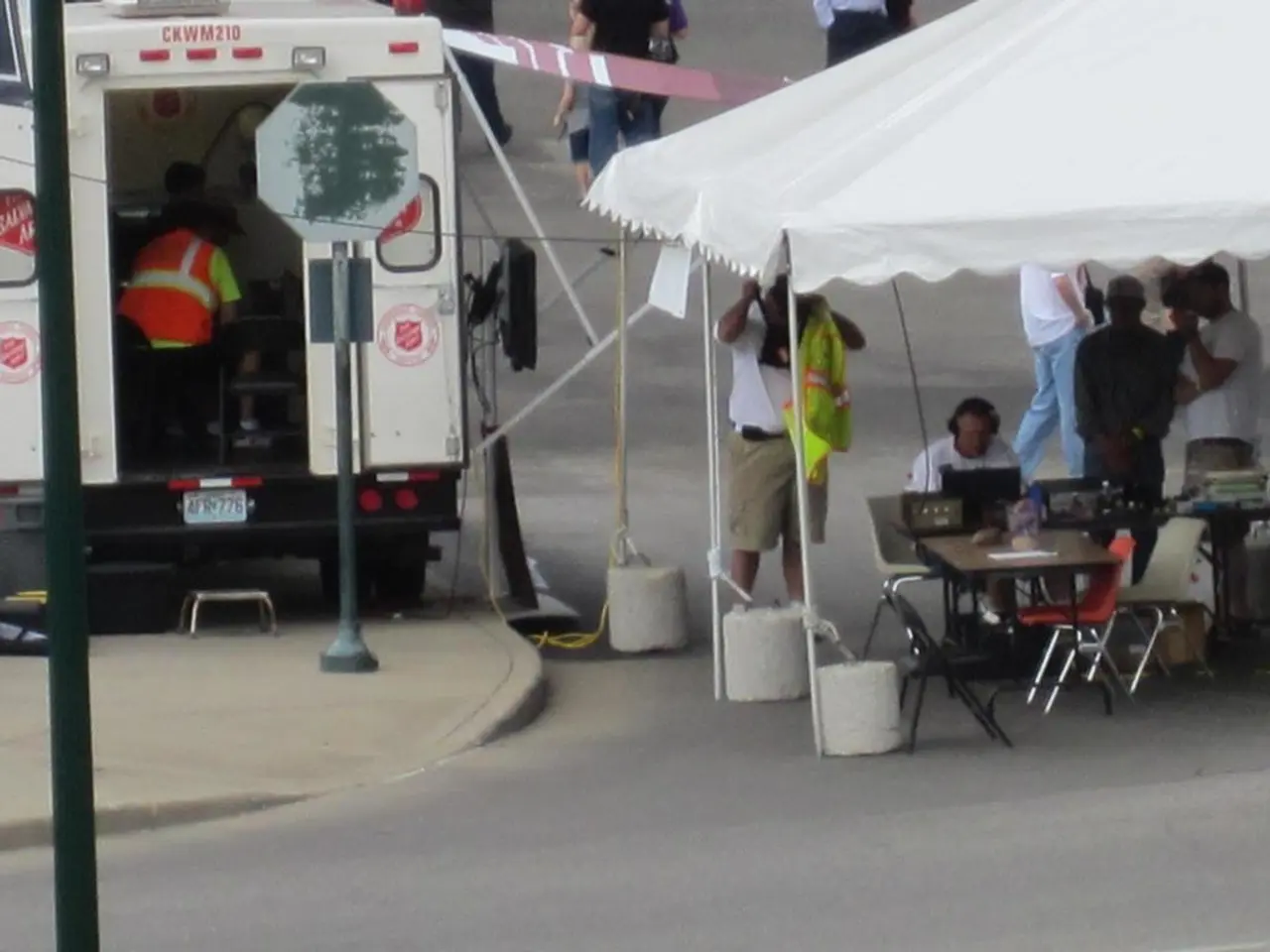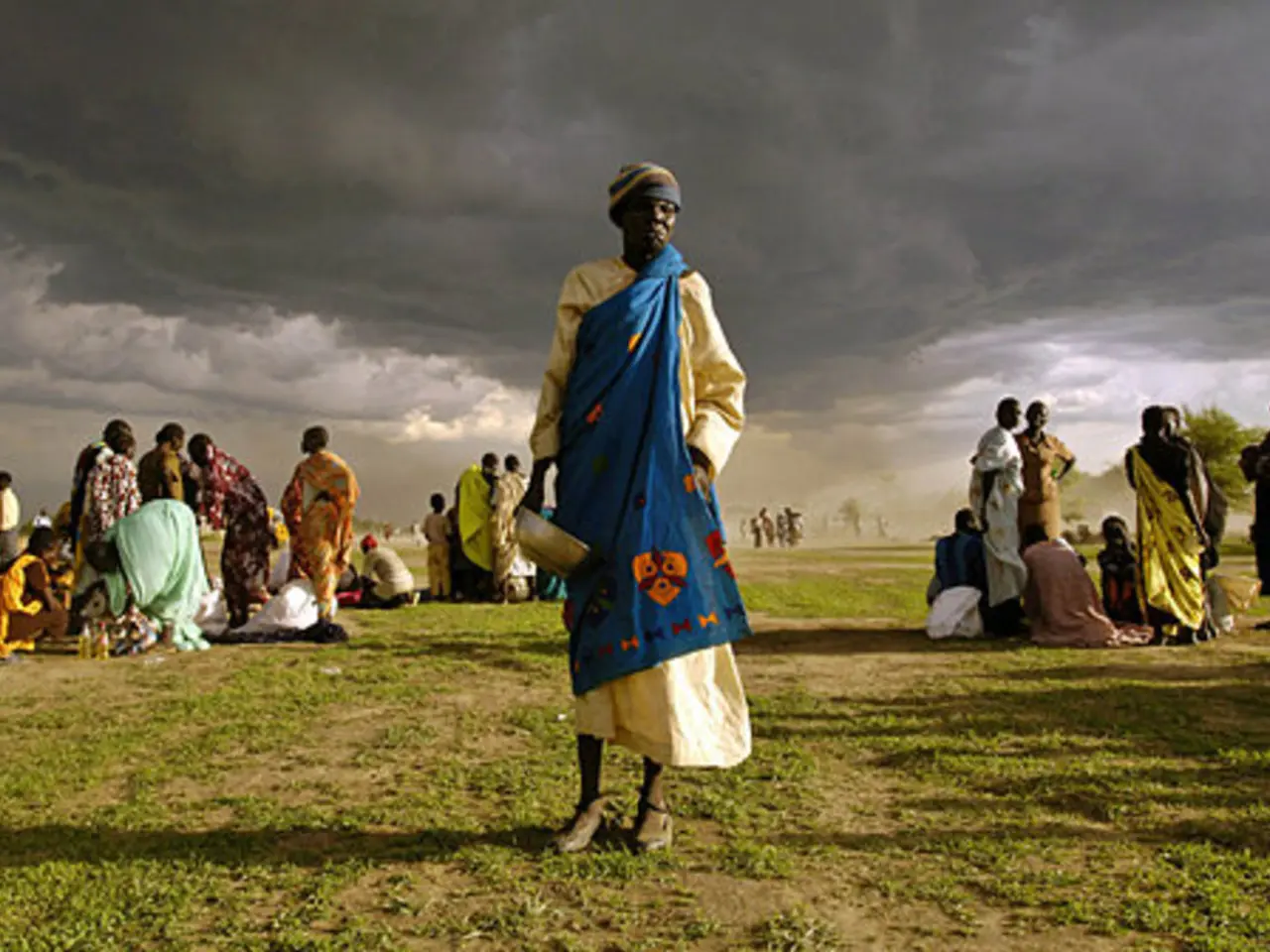Aid distribution in Gaza must be robust and comprehensive, utilizing all available entry points to ensure assistance reaches those in need.
The humanitarian situation in the Gaza Strip is reaching critical levels, with the region on the brink of famine. According to UNICEF, one in three people in Gaza is going without food for days at a time, and malnutrition among children is widespread and increasing[1][2].
UNICEF Deputy Director Ted Chaiban returned from a trip to Israel, Gaza, and the West Bank on August 1, 2025, and observed visible signs of deep suffering and hunger among families and children in the Gaza Strip. He stated that the current aid delivery is only a fraction of what's needed[3].
Access for humanitarian aid remains severely restricted, despite Israeli authorities initiating some ten-hour daily tactical pauses and reconnecting the Southern Gaza Desalination Plant to the power grid to improve water access[2]. However, aid deliveries are hampered by ongoing violence near distribution points, leading to significant casualties among civilians trying to obtain food, with reports of Israeli military actions responsible for many deaths[3][4].
UNICEF is actively advocating for and working to deliver emergency assistance focused on children. This includes emergency nutrition programs, water and sanitation efforts, and child protection initiatives[1][5]. The organisation has rebuilt the cold chain for vaccines and continues to vaccinate children in Gaza. They are also delivering 2.4 million liters of safe water per day in northern Gaza, reaching 600,000 children, but the amount is still far below survival thresholds[6].
UNICEF is pressing for more humanitarian aid and commercial traffic to come into Gaza, up to 500 trucks a day, to stabilize the situation and reduce the desperation of the population[7]. They are also advocating for 'dual-use' items and more fuel to be allowed in Gaza to repair the water system and prevent disease outbreaks.
The malnutrition indicator in Gaza City has exceeded the famine threshold, with global acute malnutrition now over 16.5 percent[8]. Over 320,000 young children are at risk of acute malnutrition in Gaza. UNICEF is providing psychosocial care to children who have been traumatized by the conflict in Gaza.
The UNICEF appeal for Gaza is severely underfunded, with only 30% of health and nutrition needs met[9]. Chaiban called for the protection of civilians and a significant expansion of access for humanitarian workers in Israel. He also urged a ceasefire and the release of all remaining hostages.
UNICEF continues to call for donations to help alleviate the crisis in Gaza[10]. Over 1,500 trucks of life-saving aid are ready at the borders in Egypt, Jordan, Ashdod, and Turkey, waiting to be distributed. Chaiban met with families of children killed in an airstrike while waiting in line at a UNICEF-supported aid center, highlighting the urgent need for action.
References: 1. UNICEF Press Release 2. BBC News 3. Al Jazeera 4. The Guardian 5. Reuters 6. UNICEF Factsheet 7. UNICEF Urges More Aid 8. UNICEF Malnutrition Report 9. UNICEF Funding Appeal 10. UNICEF Donation Page
- The UNICEF Deputy Director, Ted Chaiban, stressed that the current policy-and-legislation and aid delivery policies in Gaza are insufficient, as they only comprise a fraction of what's needed to address the war-and-conflicts-related crisis.
- In the midst of general-news reports of ongoing violence, UNICEF is advocating for increased humanitarian aid, including commercial traffic and 'dual-use' items, to help alleviate the critical humanitarian situation, particularly for children, in Gaza.







